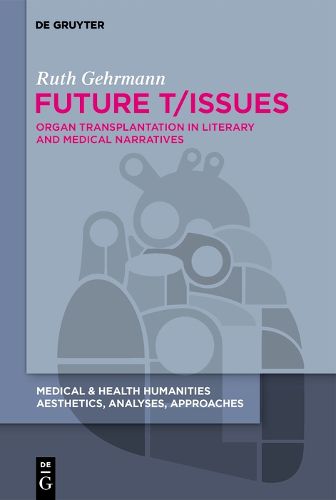Readings Newsletter
Become a Readings Member to make your shopping experience even easier.
Sign in or sign up for free!
You’re not far away from qualifying for FREE standard shipping within Australia
You’ve qualified for FREE standard shipping within Australia
The cart is loading…






Transplant practices are discussed in the medical realm, in fictional texts and in popular advertisement. Yet how do these sectors intersect and influence each other? How can the accounts of surgeons invested in transplant practice be brought into conversation with fictional voices?
Future T/Issues positions transplantation at the intersection of natural science and the humanities and adds to the discussion of organ transplantation by focusing on one specific aspect that is commonly overlooked: the idea of speculation. By engaging with speculative fiction in conversation with life writing, it contributes to a more thorough understanding of transplantation as a cultural practice, showcasing that transplantation is imagined as part of the future both within and beyond the literary sphere. Hereby, this book establishes the relationship between literary and medical narratives as reciprocal, in effect eroding boundaries between the life sciences and literary studies.
As an interdisciplinary endeavor, this study contributes to literary studies, specifically to the fields of life writing, speculative fiction, and young adult fiction, it offers insights for the study of transplantation in the popular realm and adds to the medical humanities.
$9.00 standard shipping within Australia
FREE standard shipping within Australia for orders over $100.00
Express & International shipping calculated at checkout
Transplant practices are discussed in the medical realm, in fictional texts and in popular advertisement. Yet how do these sectors intersect and influence each other? How can the accounts of surgeons invested in transplant practice be brought into conversation with fictional voices?
Future T/Issues positions transplantation at the intersection of natural science and the humanities and adds to the discussion of organ transplantation by focusing on one specific aspect that is commonly overlooked: the idea of speculation. By engaging with speculative fiction in conversation with life writing, it contributes to a more thorough understanding of transplantation as a cultural practice, showcasing that transplantation is imagined as part of the future both within and beyond the literary sphere. Hereby, this book establishes the relationship between literary and medical narratives as reciprocal, in effect eroding boundaries between the life sciences and literary studies.
As an interdisciplinary endeavor, this study contributes to literary studies, specifically to the fields of life writing, speculative fiction, and young adult fiction, it offers insights for the study of transplantation in the popular realm and adds to the medical humanities.